Nail Care for Senior Pets: Common Issues and Special Considerations
As our furry friends age, their needs change and require special attention to ensure they remain healthy and happy. One of the most overlooked aspects of senior pet care is nail care. Overgrown nails can cause pain, discomfort, and even lead to serious health issues in older pets.
In this blog post, we’ll explore common nail problems among senior pets, share tips on how to keep them healthy, and provide some special considerations when it comes to caring for your aging furry friend’s nails. Get ready to put your pet’s best paw forward!
The Basics of Nail Care for Senior Pets
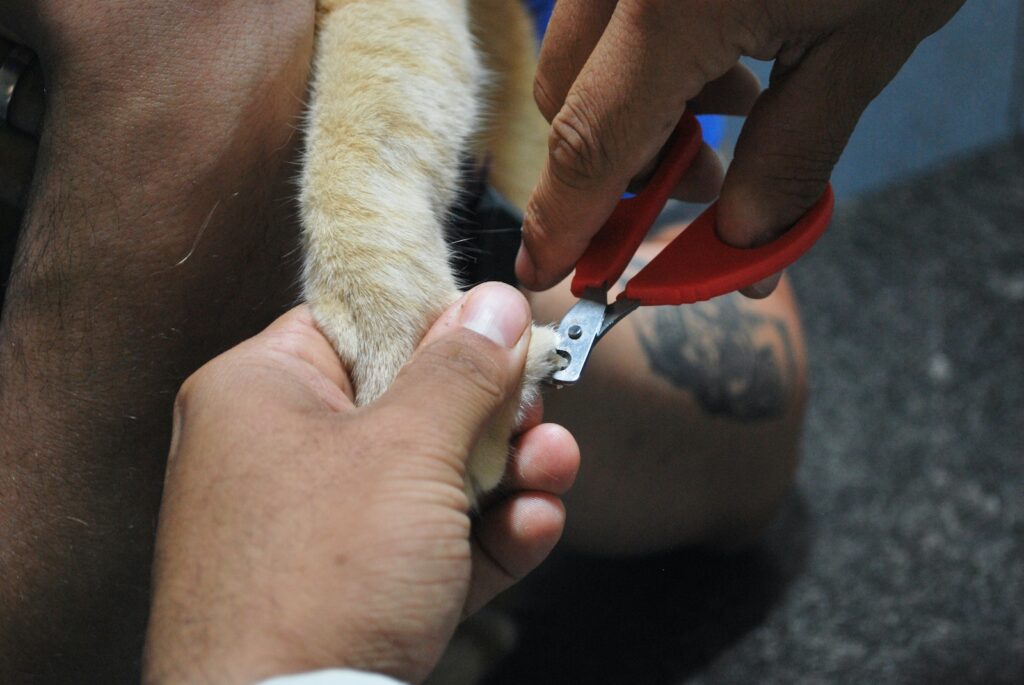
There are a few things to remember when it comes to nail care for senior pets. One is to keep their nails trimmed and straight. This helps prevent the development of arthritis in the joints around their feet, which can be quite painful. Additionally, make sure to visit your vet regularly to check that their nails are healthy and not getting infected. They may also need pain relief medication or a special diet if they have difficulty walking or chewing due to arthritis.
If your senior pet is having trouble with their coordination, you might also want to consider using assistive devices such as nail caps or paw pads. These products help protect the nails while allowing your pet to maintain some degree of mobility. If applying these products isn’t an option, consider buying them special food Johnson’s A/D Senior Dog and Cat Diet / Recipe, which provides high levels of calcium, magnesium and vitamin D for older animals prone to brittle nails.
Finally, remember that patience is key when caring for senior pets’ nails. Keep a positive attitude and be willing to try a few different techniques before settling on one that works best for your pet.
Types of Nail Problems in Senior Pets

Nail problems in senior pets can be caused by a variety of factors, including age, health, and nail-related fungus. Here are five common types of nail problems in older pets:
- Onychodysplasia: This is a disorder characterized by the growth of abnormally long nails that can become twisted, curved or ridged. Often accompanied by other skin symptoms (including excessive shedding), onychodysplasia is often treated with enzyme supplements and topical treatments.
- Onychomycosis: This infection arises from fungal overgrowth on the nails and can cause pain, redness and blistering. Treatment typically involves antibiotics and/or antifungal medications applied topically or orally.
- Ingrown toenails: These occur when the nail tips grow too close to each other, causing the nail to become inflamed and blocked. ingrown toenails are often painful and difficult to treat; treatment typically includes soakings in an anti-inflammatory solution followed by soaking in a hot mineral salt bath .
- Gelatinous fingernail syndrome: A condition caused by an overproduction of tyrosine kinase (TK) enzymes, this syndrome results in swollen finger tissues filled with fluid. The nails may also become gelatinous, brittle, yellowish or greenish in color and easily fall off. Treatment usually involves reducing TK production with prescription drugs or lifestyle changes (such as eating a healthy diet and stopping smoking).
- Onycholysis: This is a progressive-onset condition in which the nails gradually become thin and break easily. It may be associated with other health conditions, such as diabetes or autoimmune disease, and can be treated with topical creams or medications.
Prevention of Nail Problems in Senior Pets
Prevention of nail problems in senior pets is important for their well-being. Here are some tips to keep your pet nails healthy and free from breaking:
- Trimming nails regularly – Even if your pet’s nails appear thin, they need to be trimmed at least once a month. Longer nails can get embedded in the paws and become difficult to peel off or clip.
- Cleaning up around nails – Keep floors, furniture, toys and other areas near your pet’s feet clean to avoid accumulation of bacteria that can cause foul smelling toe sores. Odorless sanitizer can also be used around the nails.
- Allowing dogs to exercise outside – Regular exercise helps keep the bone density high which is beneficial for both their physical and mental health. Taking them for walks is a great way to do this!
- Feeding a quality diet – Quality pet food contains high levels of collagen which helps keep nails strong. Make sure to feed your pet a balanced diet that includes plenty of moisture and fiber to help avoid constipation.
Treatments for Nail Problems in Senior Pets
There are a few things that you can do to help keep your senior pet’s nails in good condition. You may need to trim them regularly, file them if they become too rough, and apply a nail care product once or twice a month.
Trimming Your Senior Pet’s Nails
- One of the most important things you can do to keep your senior pet’s nails in good condition is to regularly trim them. If their nails are too long, they can become caught on things and cause pain and problems. You should try to get their nails trimmed every two weeks or so, but it is always better to check with your veterinarian first for recommendations about how long their nails should be.
- If your senior pet’s nails become too rough, you may need to file them down. This will smooth out the surface of the nail and make it less likely that it will catch on things or get hurt. You should file their nails every two to four weeks as needed, but again always check with your veterinarian first before doing this yourself.
Applying a Nail Care Product
- A nail care product can also help keep your senior pet’s nails in good condition. Apply a treatment once or twice a month right after bath time and before bedtime so that the Product will be absorbed into the skin well. Products that are popular among seniors include pedicure products and manicure products designed specifically for pets’ feet and hands.
Alternative Diet Supplements for Tailsets
As pets age, their nails may become weak and brittle, making it difficult for them to scratch themselves or their surroundings. Some pet owners opt to supplement their dogs’ or cats’ diets with special diets aimed at helping to improve nail health. Here are some alternative diet supplements for tailsets:
- Probiotic supplements : Probiotics are helpful bacteria that can help support overall gut health in both humans and animals. They have been found to be beneficial in the treatment of a variety of diseases, including bad breath, diarrhea, and colitis in dogs and cats. Some probiotic supplements specifically targeting nails include Nail Tek Plus by Holistic Solutions and Heelz Help for Pets by OTI Animal Health . Both products are available online and in most pet supply retailers.
LeCavalier Health Nutrition’s Daily Defense Probiotic Supplement for Dogs is also a good option if you want to give your dog a probiotic supplement without adding extra sugar or other ingredients that could be harmful to him or her.”
- Omega fatty acids : One of the best known antioxidants, omega fatty acids are thought to play a role in protecting cells from damage and reducing inflammation. Omega fatty acids can also help to improve the structure and strength of nails. Some omega fatty acid supplements specifically targeting nails include Royal Canin Veterinary Formula for Pets’ Omega-3 & 6 Fatty Acid Supplement for Dogs and cat, Hill’s Science Diet/Science Plan Limited Ingredient Diet Adult Dog food with Omega-6 & 3 Essential Fatty Acids, and Kane’s Natural Selections lower calorie diet with Essential Fatty Acids. These products are available online or in most pet supply retailers.
- Glucosamine sulfate : A glucosamine supplement may help support the structural integrity of nails by promoting the growth of new cells and inhibiting the breakdown of existing ones. Glucosamine sulfate can also help to relieve inflammation in the Joints, Help Support Hair Growth, Relieve Pain from Arthritis, Improve Tendon Strength and Support a Healthy Skin Appearance . Extra-Strength Glucosamine Sulfate Ultra by Jarrow Formulas is a good option if you want to give your dog a glucosamine supplement without adding extra sugar or other ingredients that could be harmful to him or her.
Conclusion
As you may know, nails are an important part of the primary physical structure of a pet. Unfortunately, as we age our nails become more brittle and less able to withstand daily stressors. This can lead to a variety of nail care problems that impact not only our pets but ourselves as well. In this article, we will discuss some common issues senior pets suffer from and offer tips on how to address them. Finally, we will discuss some special considerations for senior pets when it comes to nail care, including dietary restrictions and hygienic challenges associated with aging nails.


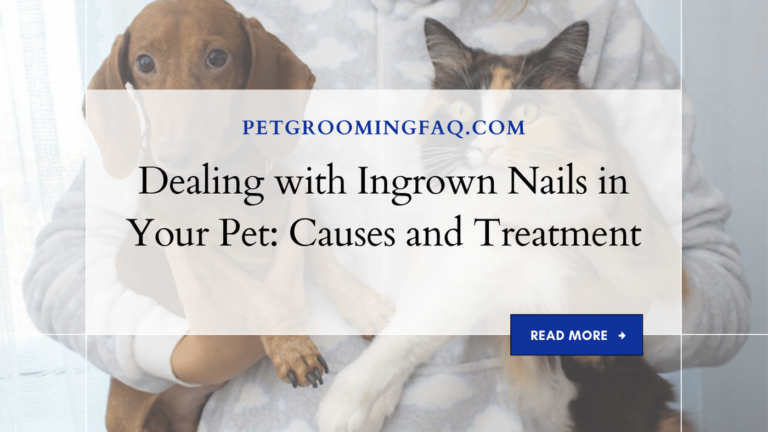
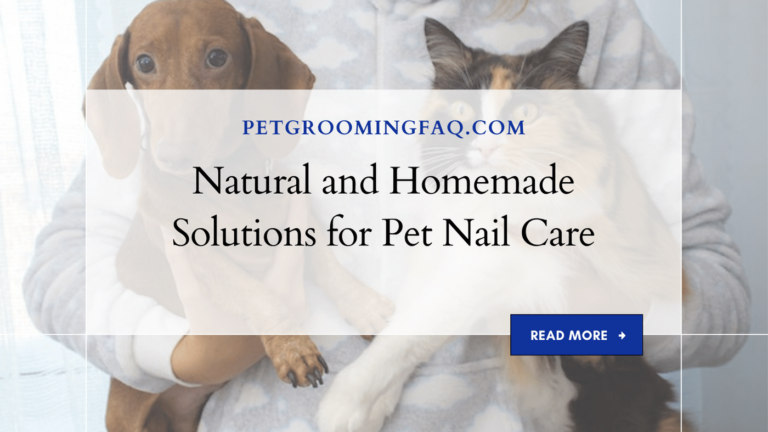
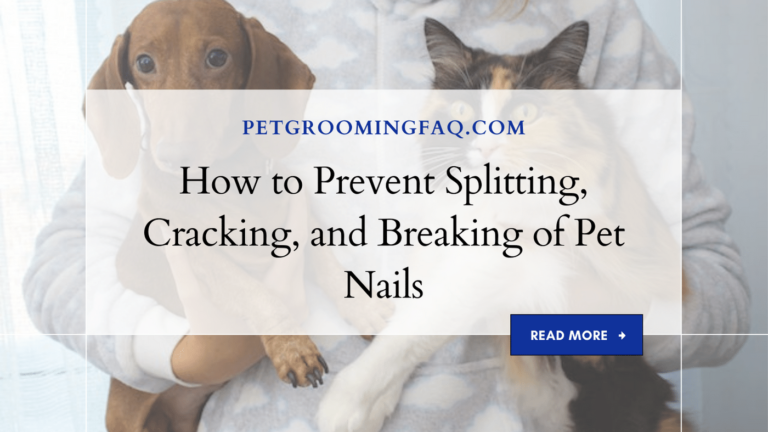
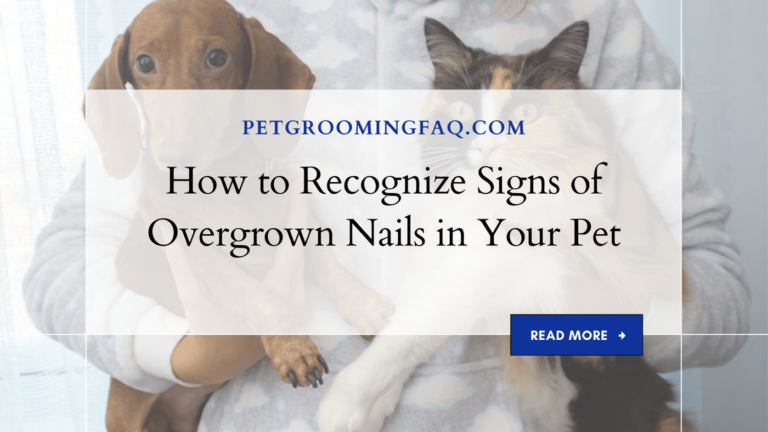
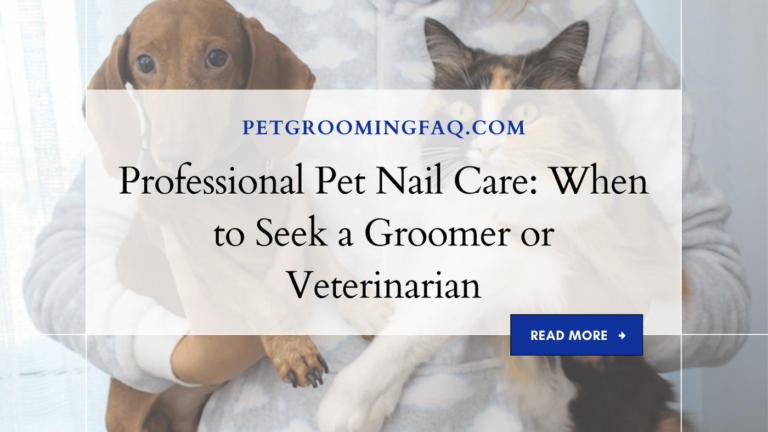
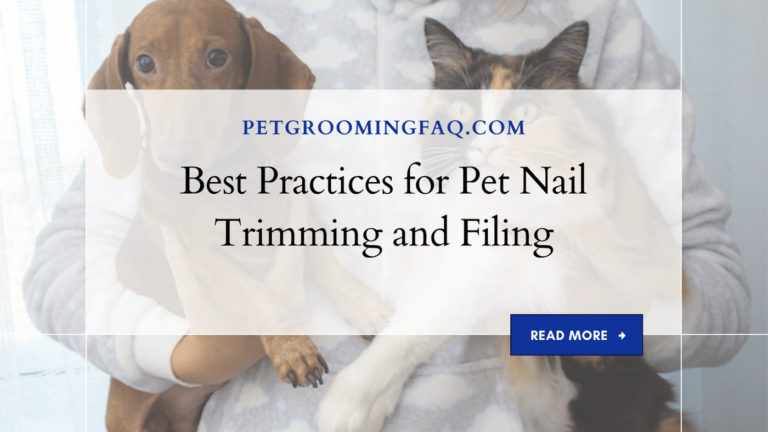
6 Comments